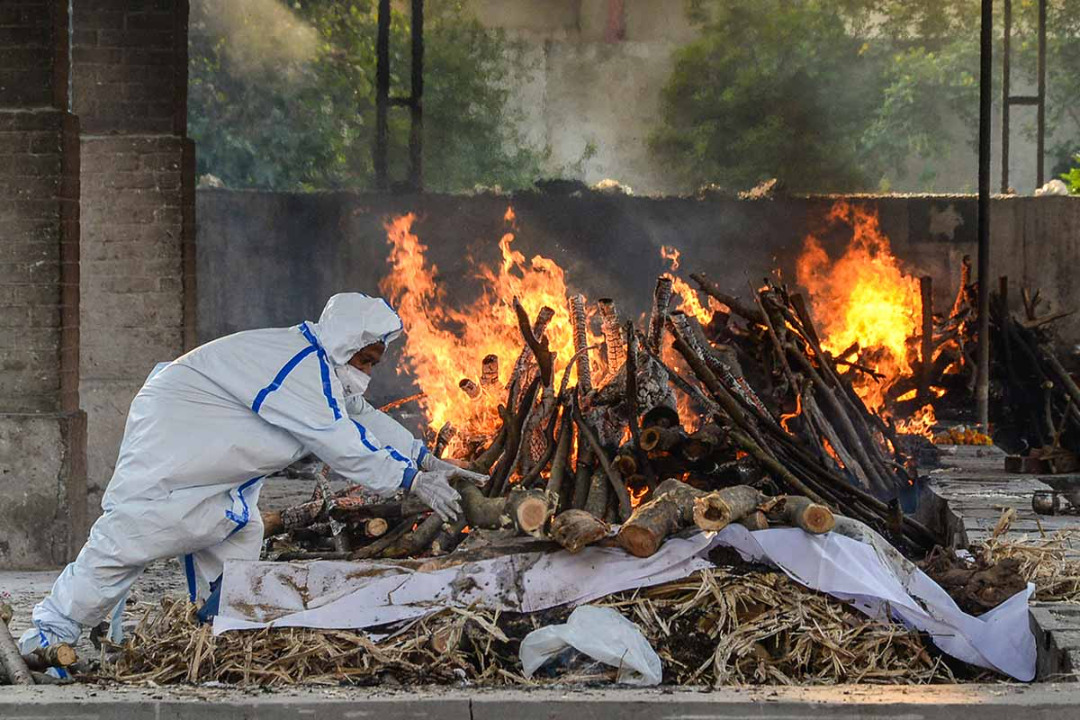Free but fair
The prevalent sensational journalism is in contrast with Mahatma’s views that hinged upon ethical standards and self-restraint in fine balance with free speech

In what came as a no surprise, BBC recently tendered an apology for broadcasting footballer Christian Eriksen receiving emergency treatment during a Euro 2020 game, after the broadcast triggered a backlash from viewers. BBC said in a statement: "We apologise to anyone who was upset by the broadcast".
More recently, Italy's public broadcaster Rai came under severe criticism for broadcasting leaked CCTV footage of a cable car crash that killed 14 people. After the backlash, the head of the broadcaster, Marcello Foa, remarked: "It is a duty for the public service, in circumstances like this, to carefully evaluate all the implications, starting with the ethical ones to the respect for the victims and their families".
Contrast this display of reason and empathy with wanton disregard of norms, ethics and journalistic principles that BBC displayed while covering the second wave of Covid in India last month. BBC was not the only one, though. Most global broadcasters operating from India showed scant regard for Indian sensibilities and sensitivities while covering the tragedy. Shots of funeral pyres, ICU wards, grieving relatives, and whatnot, made for the prime-time fare.
This was in stark contrast with how these organisations covered the Covid mayhem in their own countries. To make matters worse, a section of Indian media also competed with the global broadcasters while reporting on the Covid tragedies.
In any functioning democracy, a government must be held accountable for its actions. India is a thriving democracy and an open society. A spirit of inquiry, then, must inform the media's conduct.
On any given day, the number of op-eds critical of the government or the ruling party in Indian publications and digital media would show how dissent is alive and kicking in India. The Indian press is inarguably among the freest. It was the time, however, that it also became the fairest. It was also the time that global media corporations operating in India saw merit in fair play.
In a democracy, no form of external intervention, either by the government or by any other agency, is ever desirable in the media. But the media would also do well to debate if some form of self-regulation and introspection is required to make it more democratic, fairer, and representative of the times we live in.
It will be useful to look at the life of Mahatma Gandhi, the journalist, and see if his ideas hold any relevance for the present age.
In a 1920 piece on how the journal "Navajivan" should be run, Gandhiji, wrote: "The people are at present in an angry mood and boiling over, and therefore pleased with nothing. They are labouring under a mistaken feeling of helplessness, that they are powerless to do anything which may end their suffering. And so, they cling to anything that can make them forget their grief for a while, to anything which may provide them with an intoxicant in place of anger. That is why we see nowadays an excess of sensational writing in newspapers".
Isn't the above passage relevant in the context of some sensationalist, over-the-top reportage during the Covid crisis?
In a 1919 letter to Syed Hussain, who was starting a journal named "The Independent", Gandhiji said: "In wishing you success in your new enterprise, I would like to say how I hope your writings would be worthy of the title you have chosen for the journal; and may I further hope that to a robust independence you will add an equal measure of self-restraint and the strictest adherence to the truth? Too often, in our journals as in others, do we get fiction instead of fact and declamation in place of sober reasoning."
Shouldn't we expect some self-restraint, while ensuring adherence to truth, in any given condition, including during the Covid crisis?
While listing the objectives of "Indian Opinion", a journal he started, Gandhiji wrote in 1906: "The objects of the journal are threefold: first, to make our grievances known to the government, to the whites here in South Africa and in England and to people in India; secondly, to tell our people of their own shortcomings and to exhort them to overcome these and, thirdly, to eliminate the distinction as between Hindus and Mohamedans and also among Gujaratis, Tamilians and Calcuttawallas prevalent here".
Shouldn't we have ensured that all our differences, whether on political lines or on Centre versus states lines, were forgotten in the times of the worst humanitarian crisis in the history of India? Shouldn't the media have played a role of catalyst here?
In a letter to an aide in 1934, Gandhiji said: "The majority of journalists spoil things by judging things. They will discharge their functions well if they will give unvarnished versions of events. When they criticise, they must base their judgement on facts strictly within their knowledge".
Gandhiji, a figure revered by Indians and the world alike, was a fierce champion of freedom of the press. He, however, also sounded a word of caution, through his writings on different occasions, on how journalism should be practised. The Mahatma is thus an important reminder for the present times.
The writer, a JNU alumnus, is a political analyst. Views expressed are personal



